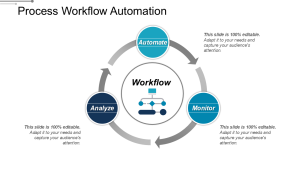Technology is revolutionizing the way we learn, making education more accessible and engaging than ever before. But let’s face it — sometimes, the learning tools that are supposed to help can become a source of stress. Between technical glitches, information overload, and steep learning curves, it’s easy to feel overwhelmed.
The good news? With the right strategies, you can make technology work for your learning goals — without the headache. Whether you’re a student, educator, or lifelong learner, mastering a few key habits can help you learn faster, stay focused, and enjoy the process.
To get started with smarter digital learning, check out this helpful resource: open edx as a service — it offers more in-depth tips, tools, and strategies to reduce tech frustration and enhance your learning experience.1. Choose the Right Tools — And Stick to Them
It’s tempting to try every new app or platform that promises to revolutionize your learning. But more tools can often lead to more confusion. Instead:
- Pick 2–3 core tools and master them (e.g., Notion for notes, Zoom for classes, Google Drive for storage).
- Look for platforms that are user-friendly, device-compatible, and regularly updated.
- Avoid tools that are packed with features you don’t need — simplicity leads to clarity.
- Create a Distraction-Free Digital Space
Digital learning only works well when your environment supports focus. Follow these steps to keep your space distraction-free:
- Turn off notifications on your devices during study time.
- Use browser extensions like StayFocusd or Forest to block distracting websites.
- Keep only relevant tabs and documents open — too many windows slow your brain down.
A clean interface = a calm mind.
- Optimize Your Learning Environment
Learning isn’t just about the tech — it’s about how you use it. Here’s how to set up your space for success:
| Element | Tip |
| Lighting | Use natural light or soft white bulbs to avoid eye strain. |
| Sound | Try background music (like Lo-Fi) or noise-canceling headphones. |
| Posture | Use a supportive chair and keep your screen at eye level. |
Even the best tools won’t help if you’re uncomfortable or distracted.
- Use Automation to Save Time
Technology should reduce your workload, not add to it. Here are a few time-saving automations:
- Set calendar reminders for deadlines and breaks.
- Use Zapier or IFTTT to automate repetitive tasks (like saving email attachments to Google Drive).
- Set up auto-sync across your devices so your notes are always updated.
- Take Regular Tech Breaks
Too much screen time can cause fatigue, headaches, and burnout. Follow the 20-20-20 rule:
Every 20 minutes, look at something 20 feet away for 20 seconds.
Also:
- Schedule offline time (e.g., reading printed materials or walking).
- Avoid checking your phone immediately after waking or before sleeping.
Balance is key to retaining what you learn and staying healthy.
- Troubleshoot Like a Pro
Even the best tech setups have hiccups. Prepare yourself with this basic troubleshooting checklist:
- Restart the app/device.
- Check internet connection.
- Clear your cache/browser history.
- Search for help using “[tool name] + error” on forums like Reddit or Stack Overflow.
If you’re still stuck, refer to user guides or contact support — don’t let small issues eat your time.
- Make It Social and Interactive
Learning with tech doesn’t have to be lonely:
- Join discussion boards or online study groups.
- Use collaborative platforms like Google Docs or Miro.
- Attend live webinars or Q&A sessions.
Interactive learning helps with retention and keeps you motivated.
Conclusion: Tech Is a Tool — Not a Solution
The right technology can open doors to limitless learning — but only if it’s used with intention. By keeping things simple, staying organized, and giving yourself space to unplug, you can reduce digital stress and make learning an enjoyable, productive part of your routine.
Remember: Technology is a means, not an end. Use it wisely, and it’ll work for you — not against you.
Want more tips and tools? Start with this guide: Making Technology Work for Learning — Without the Headache and begin building a tech-savvy learning system that fits your life.

Dariel Campbell’s writing at BibleVersaz.com reflects his unwavering commitment to sharing God’s word with sincerity and grace. With a focus on practical applications, his work encourages readers to live out their faith in everyday life, making scripture accessible and impactful.



